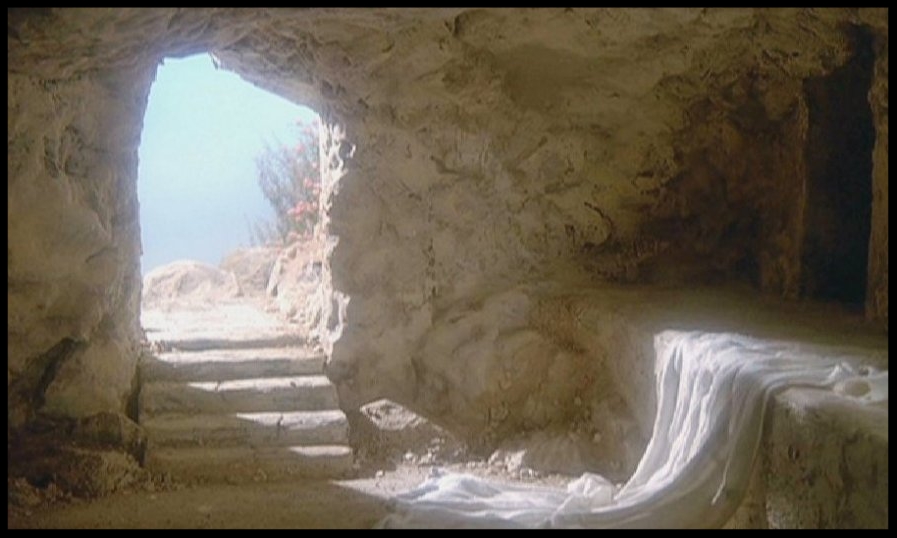Easter is Not Pagan
Hebrew scholar debunks claims of festival’s pagan roots
 Claims by English Heritage that Easter is not originally Christian have been debunked by a leading authority on the subject.
Claims by English Heritage that Easter is not originally Christian have been debunked by a leading authority on the subject.
Challenging the claim
A
aron Eime, General Director of the Church’s Ministry among Jewish people (CMJ) in the UK, said: “Myths about Easter abound all over the internet and I am constantly bombarded by many well-meaning believing Christians challenging me on the nature of Easter and its supposed pagan roots.”
English Heritage, who run historic sites all over England, is claiming that Easter’s roots lie in a pagan festival celebrating the start of spring. A booklet given out at several of its sites as part of a children’s Easter ‘adventure quest’ tracking down hidden eggs, says the word comes from the goddess Eostre.
But Rev Eime, a Hebrew scholar  who has lived in Israel for 26 years, counters: “This is simply not true but has become ‘the truth’ essentially through repetition.”
who has lived in Israel for 26 years, counters: “This is simply not true but has become ‘the truth’ essentially through repetition.”
Ishtar and Eostre
Advising the public to check the sources and not Wikipedia, he adds: “Common claims stem from the misconception that Easter is named after a pagan fertility goddess. The common archetypes are Ishtar of the Babylonian pantheon, or the Germanic goddess of spring called Eostre.
The Church Fathers were writing about Pascha (Easter) long before then.
“Ishtar is indeed a fertility goddess of the Babylonian and Assyrian pantheon. Yet the Christian community in the East – i.e. the Orthodox Church which dates back to the first century – uses the word Pascha for Easter, the Aramaic version of the Hebrew word Pesach (Passover).
“That means the Christians who live in the land where the pagan goddess Ishtar comes from don’t actually call the festival after her at all, but by its Jewish roots.
“In the West, the first recorded written account of the spring goddess Eostre hails from the eighth century, and the Anglo-Saxon monk and scholar, Bede (albeit referring to an earlier period). The Church Fathers were writing about Pascha (Easter) long before then.
Pascha
“In the second century, Melito of Sardis, a Jewish believer and bishop, wrote a defence of Pascha in which he argued for the date to be on the 14th of Nisan, the same as Passover. Nisan, by the way, is the Jewish month in which Passover falls, and it really is named after a Babylonian god!
“Interestingly, the majority of the current Jewish calendar is named after Babylonian gods, and the rabbis don’t seem to mind at all. Perhaps we should learn something from them on this one.”
Passover and Easter have strong connections.
Rev Eime continues: “Easter is only called Easter in two languages – English and German. Most other languages call the season after Pascha or Passover. For example, in French you say Paques, in Dutch it’s Pasen, in Indonesian it’s Paskah. Even in Latin, Easter is called Pascha. That’s right, the Catholic Church names the season after the original Hebrew and Aramaic.
Passover
“In much of the West, however, the Passover season became known as Eastertide. But the tradition of celebrating the life of the Messiah and his passion for eight days was given to us by the early Jewish believers in Jesus, and it had nothing to do with a pagan god.
Passover and Easter have strong connections. “Without the death of the Messiah, you cannot have a resurrection, and without a resurrection you cannot have the gospel, which can be summed up in one short sentence – ‘Messiah rose from the dead’. And that is indeed very good news!”
He added: “As Christians, we should be proclaiming Easter as loudly as possible while also challenging the Church that it’s actually Passover!”
Thanks to CMJ UK’s News & Views, April-June 2025
Charles Gardner, 17/04/2025